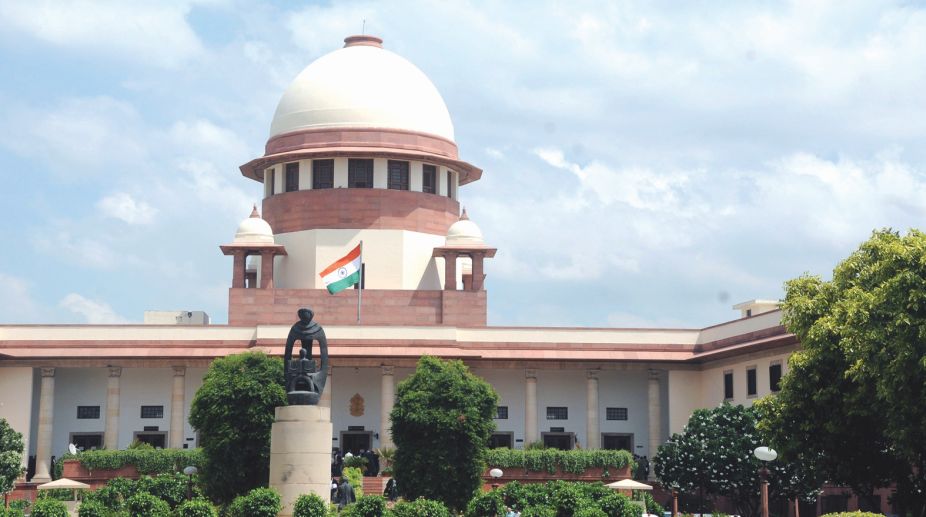SC seeks number of FIRs registered in instant triple talaq cases
Triple talaq ceased to exist on August 22, 2017, when the Supreme Court declared it void.

Supreme Court of India (Photo: IANS/File)
Technical reasons may have come in the way of the Supreme Court not offering a definitive answer, but a Bench headed by the Chief Justice of India sent out a forceful message to the nation last Thursday when it virtually rejected any challenge to a marriage between two consenting adults. It may have been in the context of the infamous Hadiya case that the query was raised, but it has widespread relevance across the country at a time when regressive casteist and communal forces are running riot.
Necessitating an iteration of such “basics” is at one level a matter of some shame, yet the line taken by CJI Dipak Misra and brother judges DY Chandrachud and AM Khanwilkar cannot be divorced from displays of increasing intolerance from the conveniently-tagged “fringe elements”, encouraged by the silence of those in authority who do not want to risk rocking the political boat. Has anyone in the Central government displayed the moral courage to swim against the tide that threatened to wash Padmaavat away? The Kerala High Court has on a couple of other matters too tended to align itself with “popular” sentiment, the apex court has injected balance into the equation by asking if the High Court was justified in nullifying Hadiya’s marriage, and re-stating its position that while other angles could be investigated there could be no encroachment on the marriage itself.
Advertisement
“Can a court say a marriage between the consenting adults is not genuine? We cannot say that she married the right person, or that the marriage was in her best interests. She came to us and told that she was married by her own choice”. Not accepting points raised by the counsel for Hadiya’s father, their Lordships said, “What troubles us is… can there be a roving inquiry on the marriage of two consenting adults to find out whether there was consent. Was the High Court justified in nullifying the marriage of a vulnerable adult under Article 226 is a pure question of law.” The court went on to emphasise that “marriage and investigation are two different things. As far as marriage is concerned it does not warrant any investigation…”
Advertisement
While the observations on Thursday were a repetition of sentiments expressed earlier, the comments on the High Court assumed considerable significance. There is cause to believe that many High Courts, and the subordinate judiciary, are becoming increasingly influenced by public sentiment. Or opt to take an easy way out. Thus their Lordships’ comments could serve as a corrective. Not every issue can be raised before the Supreme Court: that is an expensive option which many cannot afford. On “basics” the need for the message of the apex court needs to trickle down. Or be enforced by such queries.
Advertisement